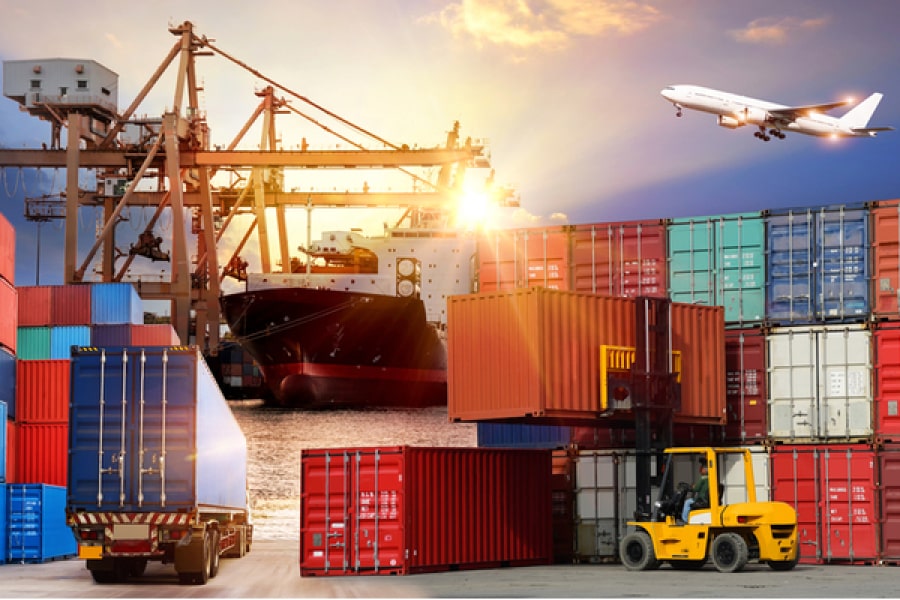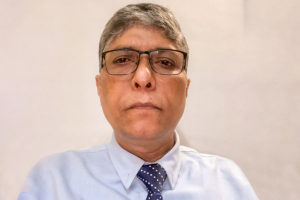Indian exporters don’t trust online channels for cross-border trade
Prof. Moutusy Maity, IIM Lucknow, opines that India’s e-commerce export market has taken a beating due to the pandemic. She also explains what factors prevent Indian MSMEs to leverage the opportunities in cross border e-commerce trade and what can be done to overcome these barriers.

source: https://bit.ly/3sCKYCT
IBT: What role does e-commerce play in India’s cross-border business? What are the opportunities/challenges do e-commerce sales have vis-a-vis retail?
Prof. Moutusy Maity: The total online e-commerce in India ranged around US$ 100 billion dollars in 2020. Out of this, cross-border B2C e-commerce is pegged at only about US$ 2 billion. This is a very small share of the total e-commerce that is happening in India and a very small portion of the potential $50 billion opportunity according to the government.
A major challenge to the growth of cross-border e-tail is that most of the small & medium enterprises in India are not online. Moreover, even if they are present online, they undertake cross border trade in the offline context as they are wary about using the online channel for the purposes of furthering their business or even getting new clients. One of the reasons that they cite for this is that they don’t trust the online space. Exporters don’t think that online channels will work for them for identifying potential clients. They don’t really know how to leverage this channel for the purposes of commerce.
IBT: How does the cross-border e-commerce trade work in terms of payment options, return and shipping policy, etc.? What challenges exist in its operations?
Prof. Moutusy Maity: The RBI has eased a lot of regulations over the past few years to address the challenges pertaining to remittances and payment options. But since these MSMEs are not very comfortable with the online channel, they need special hand-holding in that area. However, at this point in time, there are no dedicated mechanisms that will allow the government to offer this kind of support.
There are still some challenges related to postal connectivity that might hinder cross-border e-commerce trade. They also have problems with the high postal charges as the rates that are offered by the Indian Postal Services are not on par with other payment platforms like eBay and PayPal.
IBT: What are the key commodities that are traded across borders on e-commerce platforms and what are the markets that they cater to?
Prof. Moutusy Maity: Some of the top items that get sold on e-commerce platforms include clothing, metal wares, metal crafts, handicrafts, precious and semi-precious stones and accessories. The United States, Europe and the United Arab Emirates have been the top destinations for Indian exporters.
However, the channels are not very e-commerce based as these exporters are not very savvy in e-commerce tools like search engine optimization, search engine marketing- which are the normal digital marketing tools. This, coupled with language issues, is acting as a barrier for them to explore new markets. So, it would help if there was some hand-holding from the government in terms of providing training, wherein the MSME people are taught how to reach out to these markets.
IBT: How has COVID-19 impacted India’s cross border e-commerce trade? What are the reasons for the same?
Prof. Moutusy Maity: Overall, the pandemic has actually been a blessing in disguise for a lot of e-commerce companies as it helped them in expanding their businesses. However, the e-commerce export market from India has certainly taken a beating. This was because towards the initial days of the pandemic, and even now, factories had been closed, workers had been laid off, funds had dried up, and the borders were closed. So, there was no trade. And, thus, quarters one and two, in 2020 have seen quite devastating consequences that have been heaped upon the MSMEs. But the opening up of factories, people returning to their work, and the government policy in terms of helping the MSME sectors with funds has helped the sector to get back on its feet.
IBT: How can Indian investors be attracted to invest in India’s e-commerce sector?
Prof. Moutusy Maity: When we look at investments in the e-commerce sector, there are certain regulations that the government has put in place, wherein foreign direct investments can be up to 100% only in the B2B segment. Not in the B2C segment, especially when the B2C company is more of an inventory-based ecommerce. So, essentially, in the marketplace, there are two kinds of e commerce companies- ‘market based’ and ‘inventory based’. Market based companies are platforms like Flipkart or Amazon that bring together buyers and sellers, while inventory-based companies sell their own goods online. So, when it comes to cross border ecommerce, the government has mandated that only if the company is a market-based company. Then foreign direct investment is allowed. But when it is an inventory-based company i.e., there is no foreign direct investment there.
Given these investment rules, one can see that the government is actually trying to encourage people who have their own businesses to take them online and expand the business. However, because of less awareness, risk aversion to technology and not knowing where to go for investments and funding, expansion is becoming a challenge for the smaller players. The larger players are able to get funding but the smaller players are not able to get the required funding because of these kinds of norms that are there in place.
IBT: How can the contribution of e-tail to India’s GDP be enhanced in the next 5 years? What can the government facilitate the same?
Prof. Moutusy Maity: There a way to bring buyers and sellers together on a platform through voice activation, rather than through text-based activations. These kinds of technology-based innovations will allow more people to adopt digital platforms. Because today when we talk about the e-commerce space in India, we are majorly talking about the Flipkart, Amazon, Big Basket, Pepper Fry, etc. But what about the farmers, and the handicraft sellers?
Of course, the B2B technology space is very evolved, but what about the B2C or rural and tier-three cities? Those places are poised for growth but internet connectivity is an issue. Education in terms of how to adopt digital platforms for business and reliable infrastructure is needed. So, if we are to bring more people onto a channel that they use, then the infrastructural issues will have to be taken care of.
IBT: Why is China the world leader in cross border e-commerce trade? What inspiration can India draw from it in order to be among the top 5 countries in the world in terms of cross-border e-commerce trade?
Prof. Moutusy Maity: What China has managed to do over the past 15-20 years, is essentially to invest in a lot in its infrastructure. So, if you look at the growth of many of these Chinese technology firms, much of what China uses in terms of technology funds, are their homegrown funds. On the other hand, in India, we use a US based platform. So, if you look at our usage, we use Facebook, Google and Amazon, while China uses Taobao, Baidu, and Alibaba. So, essentially, their ecosystem has allowed home-grown players to leverage the technology space.
And that has happened because of firms inside of China itself, who are undertaking not just investments, but a lot of RND i.e., research and development that leads to such results. The Indian business mindset makes us good traders, but not so good when it comes to developing something on our own.
That has hurt us in the long run. When a ready product like a Google search engine or an Amazon comes in, it’s so much easier for us to adopt that. You can’t ask the consumer to switch to a particular platform just because it’s a homegrown vis-a-vis a foreign brand. It doesn’t work like that in a democracy, and it shouldn’t. But what Indian firms should do, in order to strengthen themselves is to emulate what has worked not just in China, but also in America. US firms are the world leaders. What has made Google become Google? What has made Amazon become Amazon? Their single-mindedness, pursuing whatever the consumer wants, etc. So, this is where Snapdeal and Flipkart are losing out, which is not allowing them to have that kind of a customer focus. We need to look at that.
I don’t think it’s just about China and I don’t think we should only think about China because the entire world is here. When we compare ourselves, we should compare ourselves with everybody, and not just China in that sense. Because the political environment is different there. We are a democracy and thus we have a lot of socio-political differences that play into the business development process. And that is how it should be. We are proudly a democracy and that’s what we always should hold precious. The struggles that we go through, are good for us.
The third is, of course, labour costs. So, for some reason, China has been able to keep their labour costs down, India is still a little bit competitive. But labour costs are rising because of rising income. So, that’s a good thing for people. India should maybe look for opportunities in places where Indian firms had not looked for opportunities, in terms of expansion, or new products, and RND, rather than always saying that, it’ll have to come from cheap labour.

Dr. Moutusy Maity is currently a Professor in the department of Marketing Management, at the Indian Institute of Management Lucknow (IIM-L). Prior to joining IIM-L, Moutusy was an Assistant Professor at the Indian Institute of Management-Bangalore (IIM-B), and at the University of Wisconsin, Whitewater, WI, USA.
Moutusy’s research interests are in the areas of consumer interaction with information and communication technology (ICT) (e.g., e-commerce, m-commerce, social media, desktop/laptop environment, mobile device), and the adoption of ICT (e.g., technology adoption at the bottom of the pyramid (BOP) in developing countries).
Moutusy holds a masters degree in business administration (M.B.A.) from the University of Calcutta, Kolkata, INDIA, a masters degree in arts (MA) from Jadavpur University, Kolkata, INDIA, and a doctoral degree in business administration (Ph.D.) from the University of Georgia, Athens, GA, USA.













Leave a comment